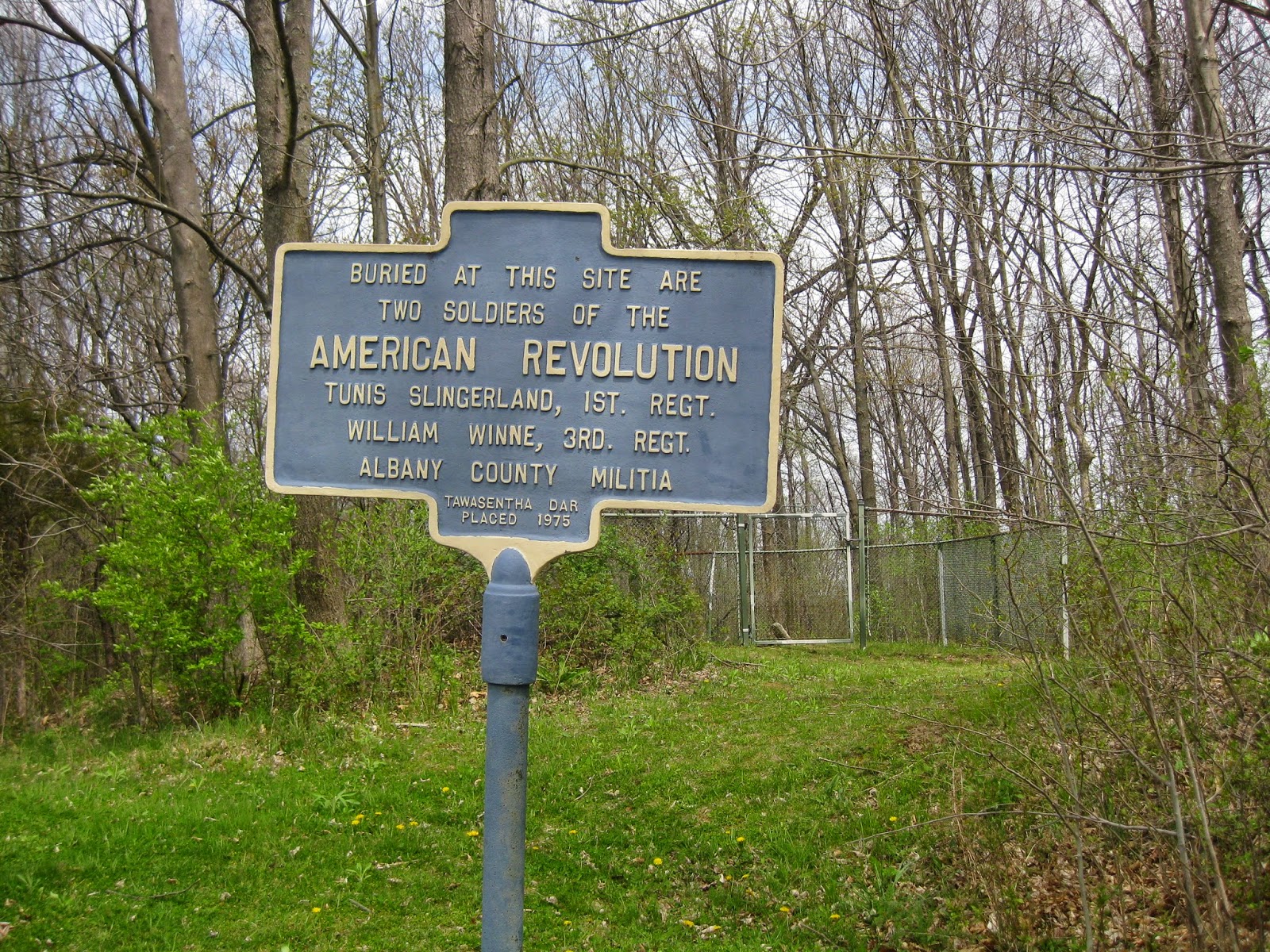It Happened Here --Veterans Laid to Rest
 |
| Cemetery on Turnpike Rd., Cambridge |
Across New York there
are many NYSHMs
marking the graves
of veterans
 |
| Encampment outside the walls of Ft. Ticonderoga |
 |
| Very often on Colonial, Revolutionary or War of 1812, battlefields or encampments these are the only markers; the individual graves are unmarked. |
 |
| Ft. Pike, Pike Rd., Sackets Harbor |
 |
| Riceville Cemetery, Riceville Rd. Mayfield |
Others are remembered in
cemeteries far from where
they were buried.
 |
| Salem Cemetery, Archibald St., Salem |
Two Albany Co. Militiamen who
may have served at the battle of
Saratoga lie buried in a plot off
of Creble Rd. near Rte. 9W, South Bethlehem
Up until WWI recruits from an area/community
 often served together in one unit. If that unit
often served together in one unit. If that unit
came under heavy attack or saw repeated heavy
action it might be decimated. The result
could be catastrophic for the communities from
which they came, for years to come. In the Civil War tiny Hartford, NY, in northern Washington County contributed 65 of 134 men enlisted in Company E of the 123 Regiment, New York Volunteers, in one day. Fourteen Hartford men from that company died. If the casualty averages hold for that unit, 2x that number would have suffered wounds and half of them would have resulted in amputations!
With nine others who died in five other units, the men of Hartford might have suffered some 69 casualties, dead and wounded! often served together in one unit. If that unit
often served together in one unit. If that unitcame under heavy attack or saw repeated heavy
action it might be decimated. The result
could be catastrophic for the communities from
which they came, for years to come. In the Civil War tiny Hartford, NY, in northern Washington County contributed 65 of 134 men enlisted in Company E of the 123 Regiment, New York Volunteers, in one day. Fourteen Hartford men from that company died. If the casualty averages hold for that unit, 2x that number would have suffered wounds and half of them would have resulted in amputations!

It may come as a surprise that New York is also home to one of the larger northern Civil War cemeteries of Confederate veterans. In 1864 Elmira's Camp Rathbun, built to train Union army inductees from central New York, was converted into a prisoner of war camp. Before long, the prison was grossly overcrowded and with appropriations falling behind increased
need, prisoners were reduced to starvation rations. With inadequate housing (some 2000 remained housed in tents well into the New York winter) alarming numbers succumbed to disease. By war's end only the infamous Confederate prison camp, Andersonville, would see a higher death rate*.
 |
| Confederate Graves At Woodlawn National Cemetery |
Perhaps a single bright spot in this rather dismal episode was the work of one man, John W. Jones, a former escaped slave charged with burying the 2973 Confederate dead from Elmira Prison. Jones meticulously buried each veteran, recording the location of each grave and preserving each soldier's identity, so that in later years individual monuments could be erected to the veterans.

Union graves at
Woodlawn National
Cemetery, Elmira
Throughout New York
State there are NYSHMs
attesting to the sacrifice
of New York's veterans
and the communities
they came from.
*A future post will be devoted to "Hellmira".
Next Week--Z. Pratt (Part 2) Farmer, Banker, Soldier, Monument Maker
Woodlawn National
Cemetery, Elmira
 | |||||
| Church St., Valatie |
Throughout New York
State there are NYSHMs
attesting to the sacrifice
of New York's veterans
and the communities
they came from.
*A future post will be devoted to "Hellmira".
Next Week--Z. Pratt (Part 2) Farmer, Banker, Soldier, Monument Maker









No comments:
Post a Comment